Iran situation explained, to an extent – Amelia Potter
Iran V. Washington.
Unless you have been living under a rock, (a phrase I always found patronizing, but now feel confident in applying), you will be aware of the catastrophic events that have happened already this year. The fundamental issues that will decide global affairs in the year ahead have been surfaced.
Donald Trump, on the 3rd of January, initiated the assassination of Qasem Soleimani, a powerful military leader, (if you know this already, keep reading. There is more to find out). The US drone strike killed an individual responsible for a group of people that aim to maintain the Islamic prominence in Iran and in neighboring nations, such as Lebanon and Iraq. This group is called the Islamic Revolutionary Guards Corps Quds Force. A long name, but essentially, instead of being an army that protect the borders of Iran and the internal societies, the group strive to share and spread their Islamic beliefs across nations. Through influence of Soleimani, the group fought against what they thought to be, ‘deviant movements’, from western interference. Western action was predominantly sourced from the U.S., who have a great history of affairs concerning Iran, Iraq and Syria. Aiming to support the anti-IRGC groups in Iran, the U.S. got involved. Soleimani’s faith was Muslim, but his interpretation of it, is what defined his controversial actions. Soleimani is responsible for many Iranian, Iraqi and American deaths, even of his own people practicing the same faith. Like other Abrahamic religions, Islam teaches final judgment, with the righteous rewarded in paradise and unrighteous punished in hell. Perhaps he though it a righteous act to kill groups of people of the same faith for not worshiping it in the way that he did. We will never know.
A jihad, is a Muslim, someone who practices and is spiritually devoted to the Islamis religion. But Jihads are not terrorists, those who practice Islam are not terrorists. Malala, a schoolgirl who was shot in the head for going to school, was a jihad. Let’s just get that clear, it comes up too much in conversation to be misunderstood. No where in the five pillars of Islam however, is it encouraged to spread the faith through torturous means, this was Soleimani’s, and arguably, other extremists’ misinterpretation. The current situation is that it has become a symbolic term for a holy war and it’s purer meaning, despite more honest, is less relevant today.
The impact of religious beliefs in politics, is something that inspires secularisation, the act of removing faith from government and/or public. Secularisation efforts conflicted Soleimani’s beliefs in Iran and thus he opposed it. Trump acted to inhibit further extremism as the IRGC spread and was considered to be a group that “participates in… and promotes terrorism as a tool of statecraft.”. Ironically it was created, in part, to oppose organisations of its own nature, such as ISIS. The IRGC has ties to other non-state armed groups, such as Hezbollah in Lebanon, Afghanistan, Iraq, the Palestinian territories, and elsewhere, providing them with training and military advice to project its power abroad. This shows how much the IRGC have spread and how the growing potential for an unjust force is dominating nations. What made the IRGC even more threatening was its lack of congruence to the Iranian government as it hoped to overpower it with a strongly theocratic structure. Becoming larger and stronger, the IRGC became immune to the efforts from the elected president.
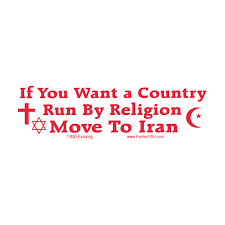
Why did Trump get involved?
Hezbollah in Lebanon, shared part of Iran’s hostility toward the United States and Israel, which occupied southern Lebanon at the time. Lebanon, some of it, was fighting against the same western interference that the IRGC resisted, thus they became involved. The 1983 bombings of the U.S. embassy and U.S. Marine and French paras barracks in Beirut, as well as assassinations of U.S. regime activists, are beleived to have been initiated by by Iranian individuals in the IRGC. They are also suspected to be involved in the 1994 bombing of a Buenos Aires Jewish center, an accusation that Iran denies. So Iran’s IRGC, under command of Solemeani, opposed and killed troops fighting for just societies, something that of course was going to receive unpopularity and opposition, it just so happened to receive a lot of it by Trump on the 3rd of January this year.
U.S. V. Iraq
Prior to this conflict in Iran, Iraq, too, was under a great deal of pressure from the U.S. Many events have happened concerning Iraq and the U.S. but to name one, from 2001-2003, the U.S. ‘Bush Administration’ worked to build a case for invading Iraq. Concluding that the government in Iraq were responsible for weapon mass production and implying that Iraq were becoming a threat to the world and neighboring countries, America justified, through the security council, the need for intervention. Refusing to stand down or cease over production, Iraq were invaded. Interestingly, the IRGC stepped in to defend the Iraqis, according to the U.S. military and U.S. State Department, the Iraqi Shia militia (army), which has existed since 2003, has received funding, training, logistics, guidance and material support from the Iranian IRGC such as roadside bombs that were used to kill u.s. troops in the Iraq V. U.S. war. Iran denies these claims. Through such involvement, Iran became known as an ‘axis of evil’, thus growing the tension between the U.S. and Iran.
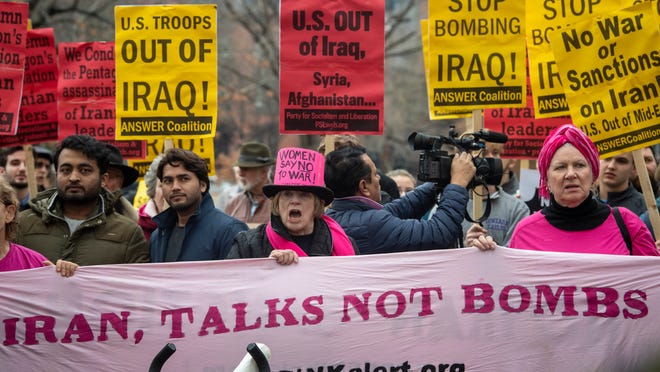
Iran and Syria
In 2011, the IRGC increased its involvement across nations this time, to Syria. Syria was facing anti-government protests that aimed to develop greater acceptance of different religions in government, (religion does seem to be a common factor in these feuds), such as the Kurds who were opposing the government. Syria’s Islamic government became backed by the IRGC, to essentially defend the faith. Syria, despite the protests, can be seen to be a sectarian state today as it still favors one religion: Islam.
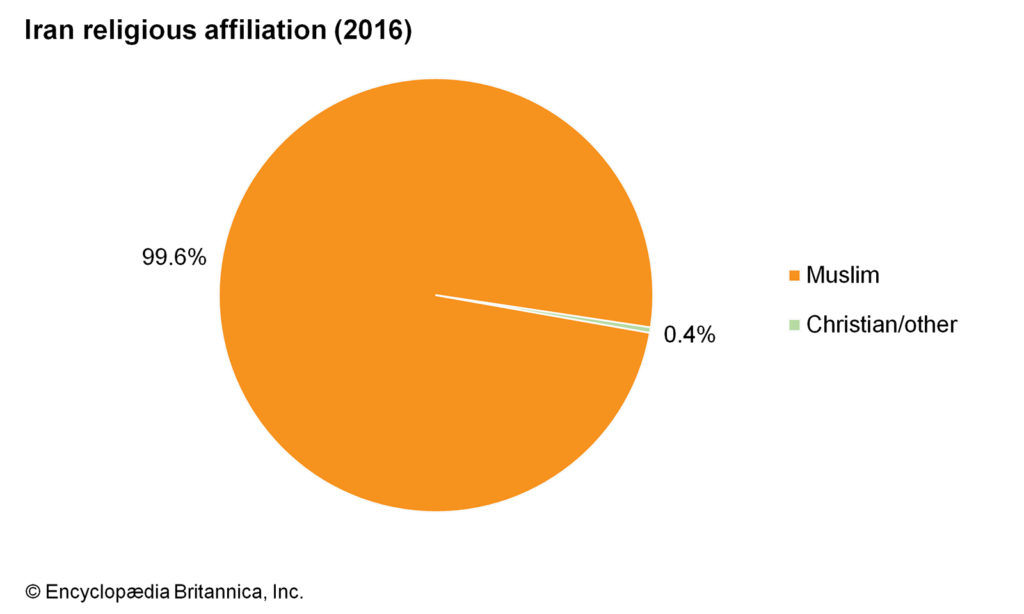
Growth
The IRGC also participates in massive black markets. Some analysts say that the U.S. sanctions faced post conflict, have only benefited the IRGC, as Iranian businesses have been cut off from finance and trade, resorting to deals with the IRGC. Also, with the U.S. imposition of oil sanctions, the IRGC had a renewed opportunity to smuggle petroleum products in order to grow in power and strength.
Following destruction of war, countries such as Syria and Iraq have been offered money and services to restore land. Their involvement in Public works projects developing Iran’s rural regions, however, only built the IRGC goodwill and self-pride, and in turn, weapons. When floods devastated rural areas in western Iran in April 2019, volunteer guardsmen of the IRGC took a leading role in relief efforts. However, through doing so they gained resources to build their strength and prominence, used not to help, but to become involved in conflict.
Essentially
The IRGC was growing, rapidly, Islam is becoming the fastest growing religion in the world, and the growth of a group of it, led by Qasem Soleimani became overwhelming threatening to the U.S. who have been targets of the Iranian powerhouse, but also to the world.
Whether ‘killing to imply that killing is wrong’, can be justified, is debatable… Clearly. And there is still a lot more to be said on this topic, but religion, agreeably the term has been misused as an excuse, does undoubtedly and sadly seem to be the cause of the tragedy.
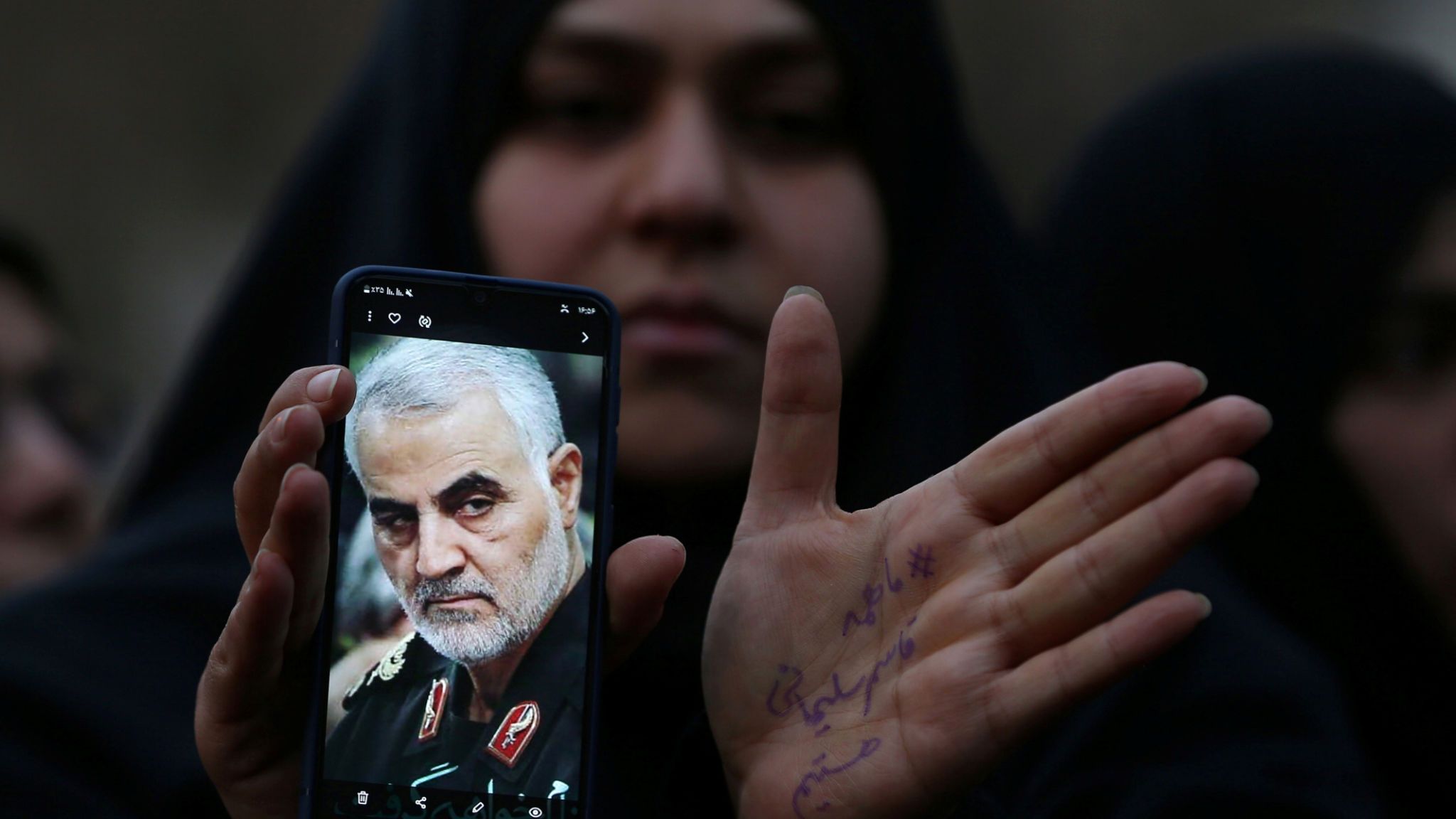
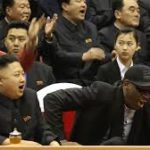


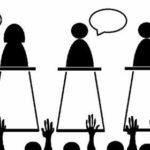










Post Comment
You must be logged in to post a comment.